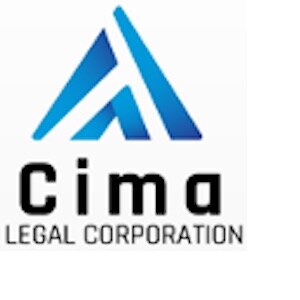Best Child Custody Lawyers in Quito
Share your needs with us, get contacted by law firms.
Free. Takes 2 min.
Free Guide to Hiring a Family Lawyer
List of the best lawyers in Quito, Ecuador
About Child Custody Law in Quito, Ecuador
Child custody laws in Quito, Ecuador, base decisions on the principle that the best interests of the child should always be prioritized. The Child and Adolescent Code is the main governing law for child custody cases, which allows both parents to contribute equally to the upbringing of the child, unless such an arrangement is not in the child's best interests.
Why You May Need a Lawyer
You may require legal help in child custody cases if you are going through a divorce or separation, if there is a dispute about visitation rights, if there is any form of domestic abuse, or if you need to modify a pre-existing custody agreement. A lawyer who specializes in this field can help protect your rights and interests and provide valuable guidance throughout the legal process.
Local Laws Overview
In Quito, Ecuador, both parents are expected to be involved in their child's life. However, custody may be granted to one parent or shared, based on the best interests of the child. The courts consider factors such as the emotional and physical well-being of the child, the parent's ability to meet the child's needs, and the overall family dynamics. If a child is 12 years or older, their opinion may also be taken into account.
Frequently Asked Questions
1) What is the legal age of majority in Ecuador?
Children in Ecuador are considered legally independent at the age of 18.
2) Can a non-resident parent apply for custody?
Yes. Non-residential parents can apply for custody, the deciding factor remains the best interest of the child.
3) Does the court favor the mother over the father in custody battles?
No, Ecuadorian law doesn’t favor one parent over another. The main focus remains the welfare of the child.
4) Can custody orders be modified?
Yes. If circumstances change, either parent can petition the court to update the custody order.
5) What happens if one parent doesn't adhere to the custody arrangement?
In case a parent doesn't respect the custody arrangement, the affected party can present a legal claim in court to enforce the agreement.
Additional Resources
Consult the official Ecuadorian government's website, check local non-profit organizations dealing with family law issues, and refer to the Child and Adolescent Code for a more comprehensive understanding of child custody laws in Ecuador. It might also be beneficial to engage with local citizen advice bureaus or family justice councils.
Next Steps
To avoid getting overwhelmed in such situations, it's essential to consult with an attorney who specializes in family law. They can provide unbiased advice, guide you throughout the process, help you understand your rights, and represent your interests in court. Start by making a list of potential lawyers, then arrange consultations to select the one that suits your needs best.
Lawzana helps you find the best lawyers and law firms in Quito through a curated and pre-screened list of qualified legal professionals. Our platform offers rankings and detailed profiles of attorneys and law firms, allowing you to compare based on practice areas, including Child Custody, experience, and client feedback.
Each profile includes a description of the firm's areas of practice, client reviews, team members and partners, year of establishment, spoken languages, office locations, contact information, social media presence, and any published articles or resources. Most firms on our platform speak English and are experienced in both local and international legal matters.
Get a quote from top-rated law firms in Quito, Ecuador — quickly, securely, and without unnecessary hassle.
Disclaimer:
The information provided on this page is for general informational purposes only and does not constitute legal advice. While we strive to ensure the accuracy and relevance of the content, legal information may change over time, and interpretations of the law can vary. You should always consult with a qualified legal professional for advice specific to your situation.
We disclaim all liability for actions taken or not taken based on the content of this page. If you believe any information is incorrect or outdated, please contact us, and we will review and update it where appropriate.












